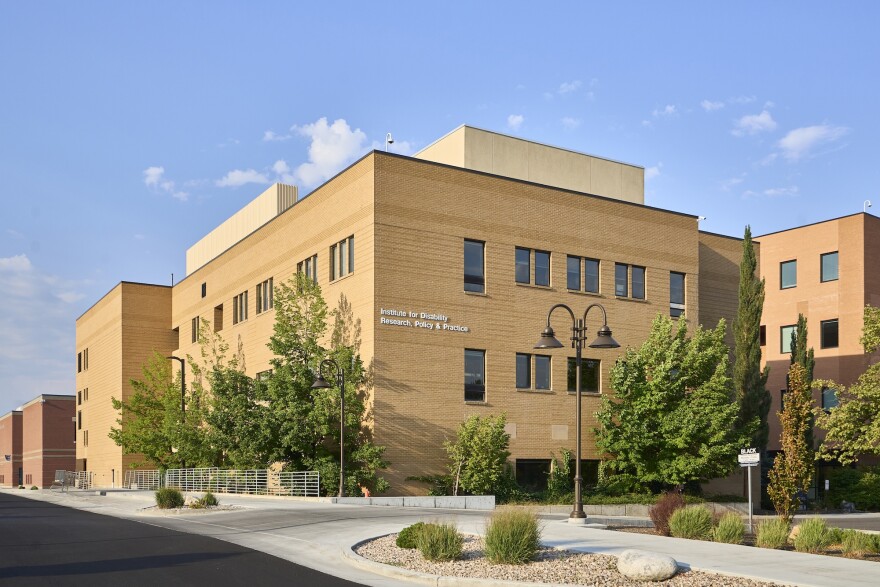Utah’s only university-based disability research center is at risk of losing federal funding — a loss that could have a domino effect on the rest of its budget.
For over 60 years, three organizations in each state have worked to provide infrastructure and support to people with developmental disabilities — disability councils, legal advocacy agencies, and university centers.
“As they created the system, they envisioned it like a three-legged stool,” said Matt Wappett, executive director at the Institute for Disability Research, Policy & Practice, which is the university center in Utah.
The institute focuses on research, testing, training, and community services, which last year it provided in 34 states and territories.
“Outside of the Space Dynamics Lab, which is sort of a separate entity, we've become the largest independent research center here at USU,” Wappett said.
That work could soon get a lot more difficult, however, because the institute is at risk of losing an important part of its funding.
Federal cuts
In the federal budget currently being debated, federal funding would be eliminated for University Centers for Excellence in Developmental Disabilities like the institute.
Instead, that funding would possibly be redistributed to states to fund these centers and other disability programs themselves, though seemingly without guidance or accountability from the federal government.
The U.S. Department of Health and Human Services said the cuts were meant to eliminate diversity, equity, and inclusion and critical race theory programs, which the budget in brief said “weaponized large swaths of the Federal Government against the American people.”
Wappett, however, said that since these centers were created in the 1960s, they’ve actually had widespread bipartisan support.
“There’s never been this threat,” Wappett said. “But all of a sudden it’s become a partisan issue. We’ve become lumped in as part of the DEI debate.”
What would be lost
Funding has already come in for this fiscal year, but if the current federal budget passes — a decision expected to come by September at the latest — the institute would lose its core grant starting next year, which would be $650,000 per year.
That's only about 2% of the institute’s total budget, but Wappett said the real problem is that this core grant lets them use that money to work on getting other grants.
“Last year ... out of that $650,000, we brought in $33 million to Utah State University,” Wappett said. “So for every one federal dollar we get in our core grant, we’re bringing in about $43 to the university.”
That’s not something the institute could replicate with existing state funding, because for most grants and contracts, it’s illegal to apply for another until the current one is finished.
“So we would lose that ability to buy out little pieces of people's time to write new grants,” Wappett said. “And so as grants went away, we would slowly start to shrink, and it would be hard for us to continue to bring in new projects and funding streams.”
The larger impact
Unlike disability research centers, disability councils and legal advocacy agencies — the other legs of the three-legged stool — are not currently at risk of losing federal funding.
Wappett said they would still be impacted by this cut, however, because each organization provides support and infrastructure the others need to function.
“You lose one leg of that stool, and the stool falls over,” Wappett said.
There would be a direct impact on the individuals and communities the institute serves as well.
“We’re the only disability research center at a university here in Utah,” Wappett said. “We are, in many cases, the only entity in some of the surrounding states here in the region that does the work that we do.”
He added that this situation has made him realize that, even though the work the institute does is important, not many people know just how involved it is.
“For many people, we're invisible,” he said. “We work behind the scenes. People don't know what we're involved with, and they don't know the impact that we have here in the state.”
During this time of uncertainty, Wappett said he hopes the institute and those who care about it can raise more awareness of the work it does and what’s at stake.
“We spend a lot of time speaking on the behalf of other people, and now we're asking folks to maybe help us out a little bit,” he said.



